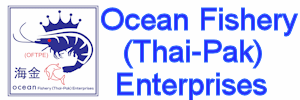Fishery and Aquaculture Country Profile for Faroe Islands
- aquatic species caught by country or area, by species items, by
FAO major fishing areas, and year, for all commercial, industrial,
recreational and subsistence purposes. The harvest from mariculture,
aquaculture and other kinds of fish farming is also included.
Faroe Fish
Farming Association -
The Faroe Fish
Producers’ Association, The Faroe Fish Farming Association. The
Faroe Islands are situated in the middle of the North Atlantic
Ocean, approximately halfway between Iceland, Norway and Scotland.
The Islands are a self governing part of the Danish Realm, but have
opted to remain outside the EU.
The Fish
Farming Industry on the Faroes
The wild
Atlantic salmon (Salmo salar) has important feeding grounds in
the sea around the Faroe Islands. The area around the islands is the
natural and best place for wild salmon. This gives ideal and natural
conditions for farming salmon.
The other commercially farmed specie is the
Rainbow trout, reared in the sea. The Rainbow trout was
originally imported as eyed ova from Denmark in 1960.
Two farmers are producing cod. The juveniles are produced on the
Faroes Aquaculture Station which is a research station on the Faroes.
The Fish farming industry takes advantage of the clean oceanic
waters surrounding the Islands. The warm Golf Stream provides a
stable sea temperature which possesses excellent conditions for
breeding Atlantic salmon, large trout and other species as well. The
country is rich of sheltered waters despite the small size of the
country.
The production is in average around 50,000 tons of farmed fish in
round weight. The evolution of Faroese salmon shows a stable growth
of farmed fish production from the early eighties except during the
recession in the Faroe Islands in the early nineties when production
decreased. In the late eighties there were a large number of farmers
in the Faroes. After the recession the fish farming industry was
restructured and consolidated. Today the Faroese fish farming
industry consists of a small number of farmers.
Federation of
European Aquaculture Producers - The Federation of European
Aquaculture Producers (FEAP) is an international organisation that
is composed of the National Aquaculture Associations of European
countries. The basic aims of the Federation are: * to develop and
establish a common policy on questions relating to the production
and the commercialisation of aquaculture species are reared
professionally. * to make known to the appropriate authorities the
common policies envisaged above.
Ocean
Health Index Faroe Islands - The Ocean Health Index is a valuable tool for the
ongoing assessment of ocean health. By providing a means to advance
comprehensive ocean policy and compare future progress, the Index
can inform decisions about how to use or protect marine ecosystems.
The Index is a collaborative effort, made possible through
contributions from more than 65 scientists/ocean experts and
partnerships between organizations including the National Center for
Ecological Analysis and Synthesis, Sea Around Us, Conservation
International, National Geographic, and the New England Aquarium.
Information for Faroe Islands
|
The Faroese Fishing Industry
The fishing fleet consists of about 240 vessels above 20 GRT,
ranging from small, wooden coastal vessels to the most sophisticated
ocean-going factory trawlers. There are also about 1.000 smaller
craft.
The main commercial species of fish caught in Faroese waters, are
demersal (ground fish) species such as cod, haddock, coalfish, and
redfish, pelagic species as herring and mackerel, and semi-pelagic
or deepwater species like argentine and blue whiting.
Most of these catches are landed in the Faroe Islands. In distant
waters (Barents Sea, Svalbard, Canada, Greenland) the main species
are cod and shrimp, which are processed on board. In middle waters,
notably the North Sea west of Britain the main species are blue
whiting, mackerel, herring, Norway pout and sand eel, which are
landed in the Faroe Islands or abroad. In Icelandic waters various
demersal species are caught, as well as capelin and herring.
The catches of demersal fish landed in the Faroe Islands are either
exported fresh or processed into fresh fillets, frozen fillets or
wet salted fish. Other species are processed into fish meal and oil,
or feed for the fish farms. The primary export markets are Denmark
(shrimp), Great Britain (Cod and haddock), Germany, France (coly,
redfish, black halibut), the Mediterranean countries (salted fish),
USA (frozen cod and haddock) and Japan (shrimps, trout).
International Salmon Farmers Association - Aquaculture, or
fish farming is centuries old. Salmon farming began in Norway
approximately 40 years ago but it has become an economic driver and
social mainstay of coastal and rural communities all over the world
– in countries like Canada, the United States, Chile, the UK,
Australia, New Zealand, Iceland, Ireland and the Faroe Islands.
Salmon farming currently employs thousands of people, generates
billions of dollars into local economies and provides leadership and
training opportunities for young people so that they can work and
raise families in their home communities. Farmed salmon has also
become a staple part of a healthy, nutritious and affordable diet
for people of all ages.
|





